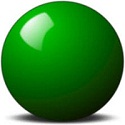 Students' attitudes towards educational programs in the Mass Communication Colleges and its departments and their relationship to the requirements of the Comprehensive Quality - A Field study on Saudi universities
, Vol.6
, Eighteenth Issue
PP:7-8
Authors:
Students' attitudes towards educational programs in the Mass Communication Colleges and its departments and their relationship to the requirements of the Comprehensive Quality - A Field study on Saudi universities
, Vol.6
, Eighteenth Issue
PP:7-8
Authors:
Associate Prof.Dr. Mohammed S. Alsubihi -Associated Prof. Dr. ,,College of Media and Communication,Al Imam Mohammad Ibn Saud Islamic University
Abstract:
This study seeks to identify the attitudes of the students (males and females) of colleges and departments of media and mass communication of Saudi universities towards the quality of the educational services of the media education programs and the degree of their satisfaction of them. The researcher used the quantitative approach in his study and used the questionnaire to collect the information of the study, drawing on a quota sample of students (males and females) for each scientific section. The number of respondents who answered the questionnaire reached (877) ones. The study resulted in the following findings:
The researcher developed a model to measure the actual performance of the programs of teaching the media at the university level consisting of nine main dimensions, which include: (faculty members, teaching and learning methods, curriculum, assessment methods, books and teaching references, labor market needs, media industry development, teaching classes, and laboratories and studios). These dimensions were expressed in indicators totaling (57) indicators. The researcher draws on the methodologies of quality assessment approach and its models, and the comprehensive quality standards. The statistical tests of this measure showed a high degree of validity and reliability, which assures its validity to measure the educational services in the media departments.
The overall result of the satisfaction level among the students of colleges and departments of media and mass communication of Saudi universities indicates that they are moderately satisfied with the level of educational services they receive during their studies at an average of (2.66). The availability of faculty members on the teaching skills required by the quality standards ranked first, with an average of (2.96). The methods of teaching and learning that stand up to the quality standards came in the second rank, with an average of (2.75). The curricula of colleges and departments of media and mass communication of Saudi universities that stand up to the quality standards came at the third rank with an average of (2.74). The remaining of scale dimensions came respectively at nearable rates, except of the quality of laboratories and studios, which came at the end of the list, expressing of low level of satisfaction compared to the rest of the dimensions with an average of (2.26).
The study revealed that there are variances of opinions among the students (males and females) in their evaluation of the quality of the educational services and the degree of their satisfaction of it. The variances of opinions have been showed in the nine- dimensions scale due to the difference of gender, university and specialization. The male students assessed the quality of the educational services provided to them with a higher degree than the female students. The students (males and females) of King Saud University assessed the educational services provided to them with a higher degree than the rest of the universities. The students also indicated that the journalism and electronic publishing program is more qualitative in the educational services offered to them compared to other disciplines, and these differences indicate a difference in the type of educational services provided, the educational environment of each university, the qualification needs of each discipline, and the degree of progress in the application of quality standards.
Key Words:
Trends, educational programs, total quality.
Research Language:
Arabic
|